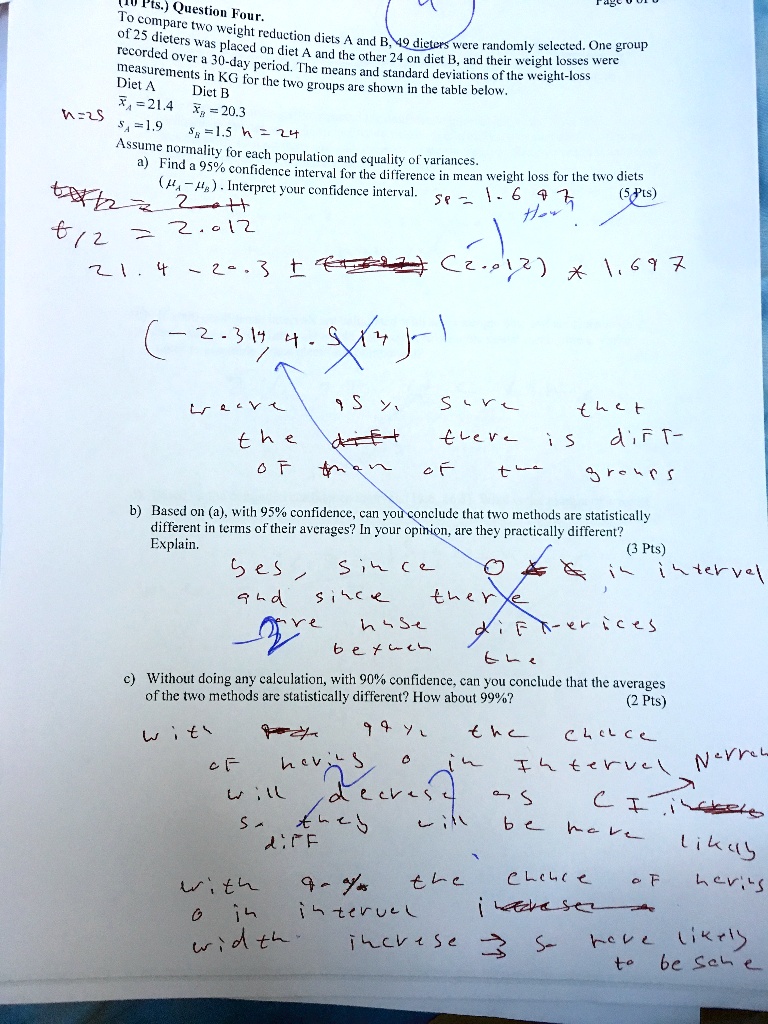The primary goals of behavioral strategies for weight control are to increase physical activity and to reduce caloric intake by altering eating habits (Brownell and Kramer, 1994; Wilson, 1995). A subcategory of behavior modification, environmental management, is discussed in the next section. Behavioral treatment, which was introduced in the 1960s, may be provided to a single individual or to groups of clients.
Typically, individuals participate in 12 to 20 weekly sessions that last from 1 to 2 hours each , with a goal of weight loss in the range of 1 to 2 lb/wk . In the past, behavioral approaches were applied as stand-alone treatments to simply modify eating habits and reduce caloric intake. How often has your diet plan gone down the drain when, in a moment of weakness, you reached out to the tub of ice-cream in the refrigerator?
The best way to stay on course is to simply get rid of all the junk food in your house. If you want to make the most of your 15-day weight loss plan, you need to clear out your fridge and throw out all the packaged and processed foods in your house. Processed foods almost always contain some form of refined fructose, which makes your body absorb and store more calories and fat. Increased physical activity is an essential component of a comprehensive weight-reduction strategy for overweight adults who are otherwise healthy.
The availability of exercise facilities at military bases can reinforce exercise and fitness programs that are necessary to meet the services' physical readiness needs generally, and for weight management specifically. For a given individual, the intensity, duration, frequency, and type of physical activity will depend on existing medical conditions, degree of previous activity, physical limitations, and individual preferences. Referral for additional professional evaluation may be appropriate, especially for individuals with more than one of the above extenuating factors. The benefits of physical activity (see Table 4-1) are significant and occur even in the absence of weight loss (Blair, 1993; Kesaniemi et al., 2001). It has been shown that one of the benefits, an increase in high-density lipoproteins, can be achieved with a threshold level of aerobic exercise of 10 to 11 hours per month. On a rapid weight loss plan, your body will detoxify and first lose a lot of water weight.
You can further lose up to five kgs in a week by following a calorie deficit diet, though experts suggest that it is best to target losing 1-2kgs per week. The key is to keep the body in fat-burning mode with the combination of restrictive eating and increased physical activity. Losing around 1kg of fat may be unattainable but losing 1kg of water weight is practical and possible. The body quickly releases water retention, especially at the start of a new weight loss regimen.
Very-low-calorie diets were used extensively for weight loss in the 1970s and 1980s, but have fallen into disfavor in recent years (Atkinson, 1989; Bray, 1992a; Fisler and Drenick, 1987). FDA and the National Institutes of Health define a VLCD as a diet that provides 800 kcal/day or less. Since this does not take into account body size, a more scientific definition is a diet that provides 10 to 12 kcal/kg of "desirable" body weight/day . The primary goal of VLCDs is to produce relatively rapid weight loss without substantial loss in lean body mass.
To achieve this goal, VLCDs usually provide 1.2 to 1.5 g of protein/kg of desirable body weight in the formula or as fish, lean meat, or fowl. Fisler and Drenick reviewed the literature and concluded that about 70 g/day of protein is needed to ensure that nitrogen balance is achieved within a short period of time on a VLCD. The largest amount of weight loss occurred early in the studies (Ditschuneit et al., 1999; Heber et al., 1994). One study found that women lost more weight between the third and sixth months of the plan, but men lost most of their weight by the third month (Heber et al., 1994). All of the studies resulted in maintenance of significant weight loss after 2 to 5 years of follow-up.
Hill's review of Rothacker pointed out that the group receiving meal replacements maintained a small, yet significant, weight loss over the 5-year program, whereas the control group gained a significant amount of weight. Active intervention, which included dietary counseling and behavior modification, was more effective in weight maintenance when meal replacements were part of the diet (Ashley et al., 2001). Meal replacements were also found to improve food patterns, including nutrient distribution, intake of micronutrients, and maintenance of fruit and vegetable intake.
For previously sedentary individuals, a slow progression in physical activity has been recommended so that 30 minutes of exercise daily is achieved after several weeks of gradual build-up. This may also apply to some military personnel, especially new recruits or reservists recalled to active duty who may be entering service from previously very sedentary lifestyles. The activity goal has been expressed as an increase in energy expenditure of 1,000 kcal/wk (Jakicic et al., 1999; Pate et al., 1995), although this quantity may be insufficient to prevent weight regain. For that purpose, a weekly goal of 2,000 to 3,000 kcal of added activity may be necessary (Klem et al., 1997; Schoeller et al., 1997).
Thus, mental preparation for the amount of activity necessary to maintain weight loss must begin while losing weight . The most important component of an effective weight-management program must be the prevention of unwanted weight gain from excess body fat. The military is in a unique position to address prevention from the first day of an individual's military career. There is significant evidence that losing excess body fat is difficult for most individuals and the risk of regaining lost weight is high. What to doYou can't control the clock, but you can control your health habits. And, while you may gain weight with age, age isn't the only factor.
"People of any age can lose weight and keep it off, as long as they create the habits that are necessary and have a plan in place for any 'slips' in behaviors that can cause weight gain," says Karp. Success in the promotion of weight loss can sometimes be achieved with the use of drugs. Almost all prescription drugs in current use cause weight loss by suppressing appetite or enhancing satiety. One drug, however, promotes weight loss by inhibiting fat digestion.
To sustain weight loss, these drugs must be taken on a continuing basis; when their use is discontinued, some or all of the lost weight is typically regained. Therefore, when drugs are effective, it is expected that their use will continue indefinitely. For maximum benefit and safety, the use of weight-loss drugs should occur only in the context of a comprehensive weight-loss program. In general, these drugs can induce a 5- to 10-percent mean drop in body weight within 6 months of treatment initiation, but the effect can be larger or smaller depending on the individual.
As with any drug, the occurrence of side effects may exclude their use in certain occupational contexts. However, the long-term effectiveness of these diets is somewhat limited. Approximately 40 to 50 percent of patients drop out of the program before achieving their weight-loss goals.
In addition, relatively few people who lose large amounts of weight using VLCDs are able to sustain the weight loss when they resume normal eating. In two studies, only 30 percent of patients who reached their goal were able to maintain their weight loss for at least 18 months. Within 1 year, the majority of patients regained approximately two-thirds of the lost weight (Apfelbaum et al., 1987; Kanders and Blackburn, 1994). In a more recent study with longer followup, the average regain over the first 3 years of follow-up was 73 percent. However, weight tended to stabilize over the fourth year.
At 5 years, the dieters had maintained an average of 23 percent of their initial weight loss. At 7 years, 25 percent of the dieters were maintaining a weight loss of 10 percent of their initial body weight (Anderson et al., 1999, 2001). A nutritionally balanced, hypocaloric diet has been the recommendation of most dietitians who are counseling patients who wish to lose weight.
This type of diet is composed of the types of foods a patient usually eats, but in lower quantities. There are a number of reasons such diets are appealing, but the main reason is that the recommendation is simple—individuals need only to follow the U.S. In using the Pyramid, however, it is important to emphasize the portion sizes used to establish the recommended number of servings. For example, a majority of consumers do not realize that a portion of bread is a single slice or that a portion of meat is only 3 oz.
How many calories you burn depends on the frequency, duration and intensity of your activities. One of the best ways to lose body fat is through steady aerobic exercise — such as brisk walking — for at least 30 minutes most days of the week. Some people may require more physical activity than this to lose weight and maintain that weight loss. The efficacy of individual interventions is poor, and evidence regarding the efficacy of combinations of strategies is sparse, with results varying from one study to another and with the individual. Recent studies that have focused on identifying and studying individuals who have been successful at weight management have identified some common techniques.
These include self-monitoring, contact with and support from others, regular physical activity, development of problem-solving skills , and relapse-prevention/limitation skills. A significant part of weight loss and management may involve restructuring the environment that promotes overeating and underactivity. The environment includes the home, the workplace, and the community (e.g., places of worship, eating places, stores, movie theaters).
Environmental factors include the availability of foods such as fruits, vegetables, nonfat dairy products, and other foods of low energy density and high nutritional value. Busy lifestyles and hectic work schedules create eating habits that may contribute to a less than desirable eating environment, but simple changes can help to counter-act these habits. If you are looking to lose weight, it is important to understand that it may not be an easy process. It needs hard work, willpower and patience to lose weight. Diet is a crucial part of shedding weight and one may have to exercise control over what they eat and how much they eat. While it may be a gradual process, some people may not have the patience to wait till long to shed some kilos; especially, when you have to attend a wedding, or if festivities are nearing.
Most people turn to fad diets like keto diet, intermittent fasting, air diet etc. But did you know, there are Indian diet plans that could help you lose weight in about a week? Well, if not, Dietician Nikita Agarwal from Life Health & Nutrition Clinic tells us why Indian food is better, and how you could use it to lose weight, the healthy way.
Hundreds of fad diets, weight-loss programs and outright scams promise quick and easy weight loss. However, the foundation of successful weight loss remains a healthy, calorie-controlled diet combined with increased physical activity. For successful, long-term weight loss, you must make permanent changes in your lifestyle and health habits. We now know that quick weight loss, where you can reduce 5kgs in 5 days is achievable through a diet plan. However, do bear in mind that this cannot be a sustainable or long-term weight loss solution.
For a healthy and sustainable lifestyle, including physical activity in your daily routine helps. To lose 5 kg in a week, you'll need to follow a strict diet and exercise regimen. Avoid foods that are high in carbohydrates, like bread, pasta, and rice. Instead, opt for lean proteins like chicken and seafood in addition to plenty of fruits and vegetables. Drink at least 64 ounces of water daily to stay hydrated and to help you feel full longer, and get minutes of a moderate activity like running or swimming every day. Many individuals and companies promote the use of dietary fiber supplements for weight loss and reductions in cardiovascular and cancer risks.
Numerous studies, usually short-term and using purified or partially purified dietary fiber, have shown reductions in serum lipids, glucose, or insulin (Jenkins et al., 2000). Long-term studies have usually not confirmed these findings (LSRO, 1987; Pasman et al., 1997b). Current recommendations suggest that instead of eating dietary fiber supplements, a diet of foods high in whole fruits and vegetables may have favorable effects on cardiovascular and cancer risk factors (Bruce et al., 2000). Recent studies of individuals who have achieved success at long-term weight loss may offer other insights into ways to improve behavioral treatment strategies. However, this population was self-selected so it does not represent the experience of the average person in a civilian population.
Because they have achieved and maintained a significant amount of weight loss , there is reason to believe that the population enrolled in the Registry may be especially disciplined. As such, the experience of people in the Registry may provide insight into the military population, although evidence to assert this with authority is lacking. It is easy to assume that if you lose weight eating a certain number of calories or amount of food, then you will keep on losing weight just as long as you stick to that plan.
However, as you lose weight your energy expenditure decreases. It is estimated that you, with every lost kilogram of body weight, decrease energy expenditure by ~20-30 Cal/day . Unlike calorie-restricted diets, short-term intermittent fasting helps to speed up your metabolism – by as much as 14%, according to research from Johns Hopkins Weight Management Center. It does this by causing a rise in norepinephrine, a stress hormone responsible for releasing fatty acids from fat cells and making larger amounts of fat available for the body to burn.
And the faster your metabolic rate, the more calories you'll burn by doing basic activities like sitting down, eating and sleeping. Exercise is also encouraged during intermittent fasting, which in turn helps with hanging onto and building muscle mass – another essential way to boost your metabolism. Follow this6 Week Workout and Nutrition Guide for Losing 5kgsand you'll reset your health and fitness with new habits, an active lifestyle and plenty of nutritious food. Part of a sustainable weight loss program is ensuring the calorie deficit isn't too extreme so you're not hungry and stressing your body, as well as balancing exercise to support you rather than tiring you out.
Many of us have the goal "lose 5kgs" on our lists when summer starts approaching. Firstly, it's important to remember that weight is just a number and not necessarily an indicator or health. Secondly, we also know that we're all a little less active in winter and tend to turn to comfort foods, so perhaps you're looking to slim down a little for your physical and mental wellbeing. While there is no one perfect way to lose weight as every body is different, however a mix of healthy eating and exercise is a sustainable, effective and safe way to shed those kilos.
Weight loss plan to lose 20 kgs -"Drink lots and lots of water — even when I am not thirsty. Staying hydrated as multiple health benefits and also aids weight loss.Cut 500 calories from my diet plan. … Do cardio exercises — 5 days a week and strength training workouts for 3-4 days a week. Whether you have a special occasion coming up or you just want to feel healthier, sometimes you might want to lose weight fast. Losing 5 kilograms in one week is a difficult goal to reach, but you may be able to do it with the right diet and exercise strategies.
However, losing weight slowly will make it easier to maintain your weight loss. When starting your diet, you are probably motivated and excited to be starting your weight loss journey. You have found a diet that you think will fit you and can lead you straight to your goal.
During the first few weeks, everything goes according to plan, you lose a substantial amount of weight, you are feeling good and devoid of hunger feelings. Then, after additional days/weeks of following the plan, you stop losing weight and everything starts to become harder your motivation drops and you are now suffering from hunger pangs. There can be several reasons for the initial "easy" weight loss and for your weight loss to come to an abrupt halt after some time. On this day, dieters will be allowed to eat fruits, veggies, good fats, good carbs, and proteins.



























